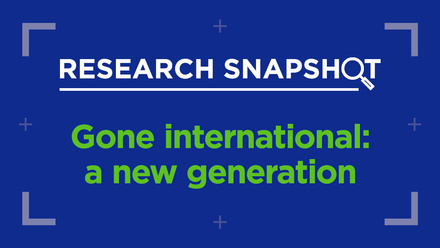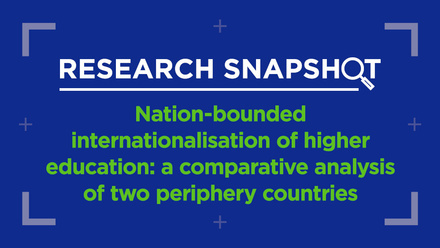How to deal with systemic inequalities

"Let me tell you about my first day", my friend told me.
“I was in the staff lounge when one of my colleagues walked up to me and told me, ‘I have just met my students for the first time. I believe so-and-so probably will not make it.’ She mentioned four girls with Turkish names. She had only met them for an hour and already knew that they were probably not going to make it. I told her, ‘let’s not start right off by labelling people.’ She then told me, ‘Well, I am usually right about these things.’” My friend sighed.
I felt for those students, but also for my friend. She is one of a few staff of colour at this particular institution. She is about burnt out, or at least close to getting there, and I know she wants to leave. I have seen several other staff of colour leave this and similar institutions. They don’t just leave – they leave disheartened and broken. Something is not right about that.
Talking the talk
This particular institution, like many others, has made public declarations about wanting to embrace diversity, being intolerant of discrimination and racism, yet a public statement does not necessarily reflect what plays out on the work floor or in the classroom. To make matters worse they have recently started a campaign to hire more people of colour to improve their diversity. That is a nice sentiment, but what are you welcoming these people into?
A public statement does not necessarily reflect what plays out on the work floor or in the classroom
I am asked often what needs to happen to make our institutions more inclusive, more embracing of true diversity. People have been at it for decades, and for some reason we do not seem to make much headway. Trainings about implicit bias, micro-aggressions and white privilege have become standard approach in the fight to do right. However, studies have also shown that these trainings don’t really cause a lot of change. If anything, they can make matters worse. “I am justified in my racism because everyone has biases. You can’t help it!” “Now that I know about white privilege, I feel guilty and paralysed!” These are some of the statements I have heard.
Walking the walk
In my opinion there are two things that have to happen for things to really change.
On the one hand, operational and systemic changes need to be made. We know the things that need to be addressed. We have enough research and data to be well informed about inherent and systematic inequalities that hold our educational institutions back from what they can potentially be. We need to become brave enough to actually tackle those structures effectively.
Which brings me to the second thing that needs to be addressed and that is the culture and our behaviour that is the result of and maintains that culture. We don’t listen. We don’t know how to talk. We have conditioned responses that are hard to shake. We are so ingrained in our earned positions that we become extremely fragile when confronted with any threat of substantial change.
We as leaders have to help our people move forward not only in their capabilities, but especially in their confidence
Having to change some of our structural systems requires us to have a certain fortitude that we do not have. We do not have it because we have not been trained to have it. The reason that we have blind spots and a high level of ignorance is by design. The reason we have feelings of shock, incredulity, guilt, or denial with the confrontation of systemic inequalities serves a purpose. You can only maintain such a system if people are not aware that they are participating in it, if the system is normalised. There lies the challenge. We as leaders have to help our people move forward not only in their capabilities, but especially in their confidence.
We have to create spaces where it is okay to question, to not know, or to make mistakes. We have to get rid of a reward system that only celebrates successes and demonises failures. We have to create spaces where it is ok to grow. The good news is that many are willing and ready.
Let’s get to work.






